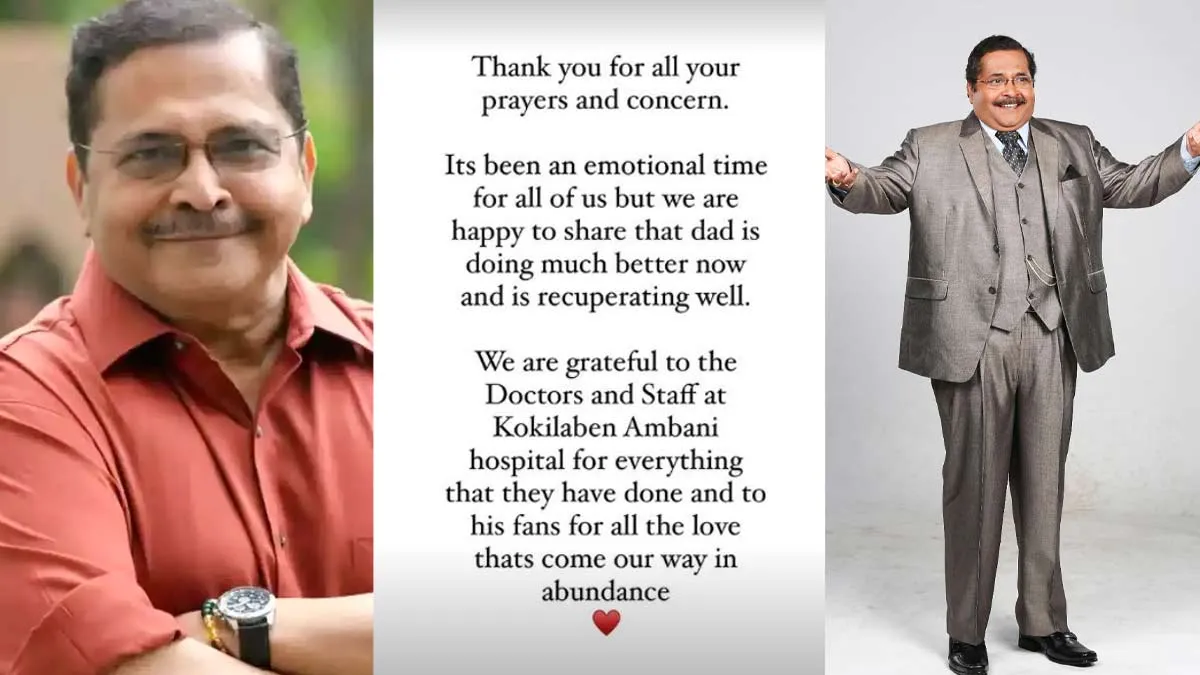
Veteran Bollywood actor Tiku Talsania is currently recovering well after suffering a brain stroke, as confirmed by his daughter, Shikha Talsania. He was hospitalised at Kokilaben Dhirubhai Ambani Hospital in Mumbai following the incident, which occurred while he was attending a film screening.
Table of Content:-
Shikha took to Instagram to express gratitude and update her father's condition, stating, "It's been an emotional time for all of us, but we are happy to share that Dad is doing much better now and is recuperating well". However, as he is recovering, it’s important to engage in activities that can aid rehabilitation; here are a few brain exercises for stroke recovery that can help improve cognitive function and support overall healing.
What Are A Few Brain Exercises for Stroke Recovery?
A brain stroke, according to the World Health Organisation (WHO), is a serious medical condition that happens when blood flow to the brain is interrupted. This can cause sudden brain problems, like trouble speaking, moving, or understanding. Strokes can last for a long time or can lead to death. Regarding brain stroke rehabilitation, Dr Gaurish Kenkre, General Manager and Center Head at Atharv Ability, Mumbai discusses strategies for restoring function, improving mobility, and promoting independence in stroke patients.
Below are a few brain exercises for individuals in brain stroke recovery.
- Brain Teasers: Engage in puzzles like Sudoku, crossword puzzles, or word searches to enhance memory and analytical thinking skills.
- Jigsaw Puzzles: These improve concentration, visual-spatial skills, and problem-solving abilities while providing a sense of accomplishment.
- Memory Games: Games challenge memory skills by requiring players to recall patterns and sequences.
- Counting Money: Use various coins to practice counting, which stimulates cognitive function and quantitative reasoning.
- Cooking: Following recipes can enhance memory, sequencing, and problem-solving skills while engaging multiple senses.
- Board Games: Classic games like Checkers or Connect Four stimulate deductive reasoning and organisation skills.
- Visuospatial Processing Games: Apps that involve finding differences between images can help improve perceptual skills.
- Breathing Exercises: Techniques such as diaphragmatic breathing can calm the nervous system and improve cognitive function.
- Art and Crafts: Engaging in creative activities can boost fine motor skills and cognitive engagement.
- New Hobbies: Trying out new activities can stimulate the brain and promote learning.
How Can Strokes Affect Your life?
As per the NHS, strokes affect people in different ways. For some, recovery may take just a few days or weeks, and their lives may not change much. For others, recovery can take months or even years, and it might require making changes in their lives. This could mean adjusting your home to make it easier to move around or taking time off work, either temporarily or for a longer period.
How well you recover depends on how much the stroke has impacted you physically and mentally, as well as your rehabilitation plan. The exercises and therapy sessions you do during rehabilitation can be challenging, but they will help you improve. Your treatment and doctor's team will provide a plan to help you set goals for your recovery. Involving family and friends can also support your healing process.
Also watch this video
How we keep this article up to date:
We work with experts and keep a close eye on the latest in health and wellness. Whenever there is a new research or helpful information, we update our articles with accurate and useful advice.
Current Version
